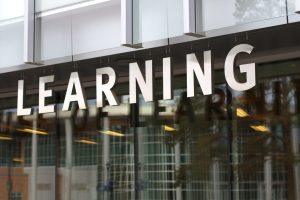Chapter 6: Learning Principles

Learning theories are often primarily geared to the education stream of K through 12. Although the theories in this chapter are relatable to these grade levels, a heavy emphasis will be placed on adult learning within post-secondary learning institutions. Furthermore, some key theories in organizational learning, and the nature of knowledge in relation to work within learning organizations will be deciphered.
The learning outcomes for this chapter are:
- Identify and define the learning cycle for adult education.
- Compare and contrast the differences between short term memory and long term memory, and relate it to higher education inside a learning organization.
- Define epistemology and understand the base theory of learning.
- Define the theories of organizational learning, and contextualize how they would fit in a learning organization.
- Define the three c’s of knowledge in relation to work within a learning organization.
Chapter Tips:
- Develop an understanding of epistemology and why it is important in a learning organization.
- Look in-depth into the theories of learning within organizations and their relationships to learning organizations.
- Familiarize yourself with constructivism and Bloom’s Taxonomy.

